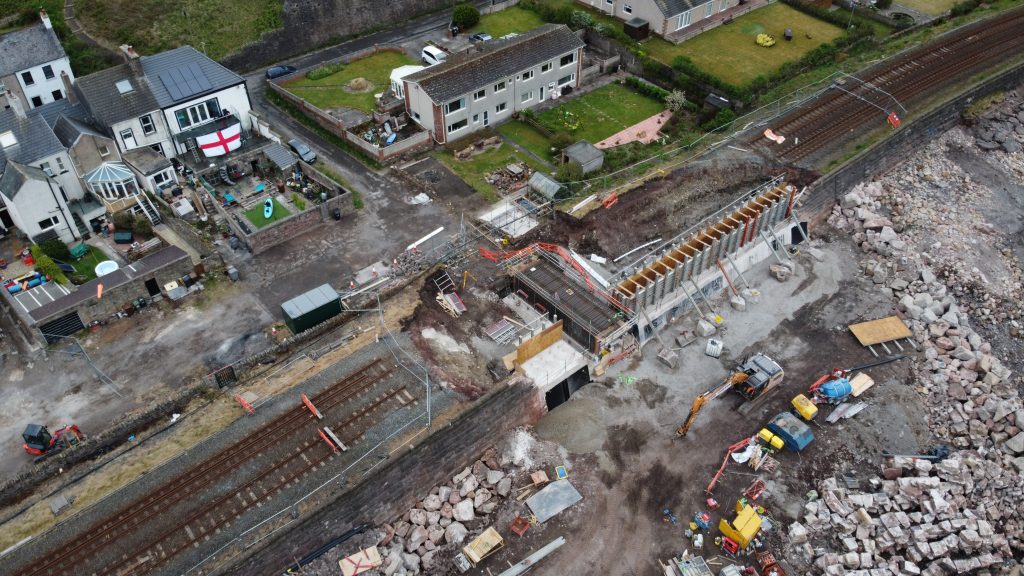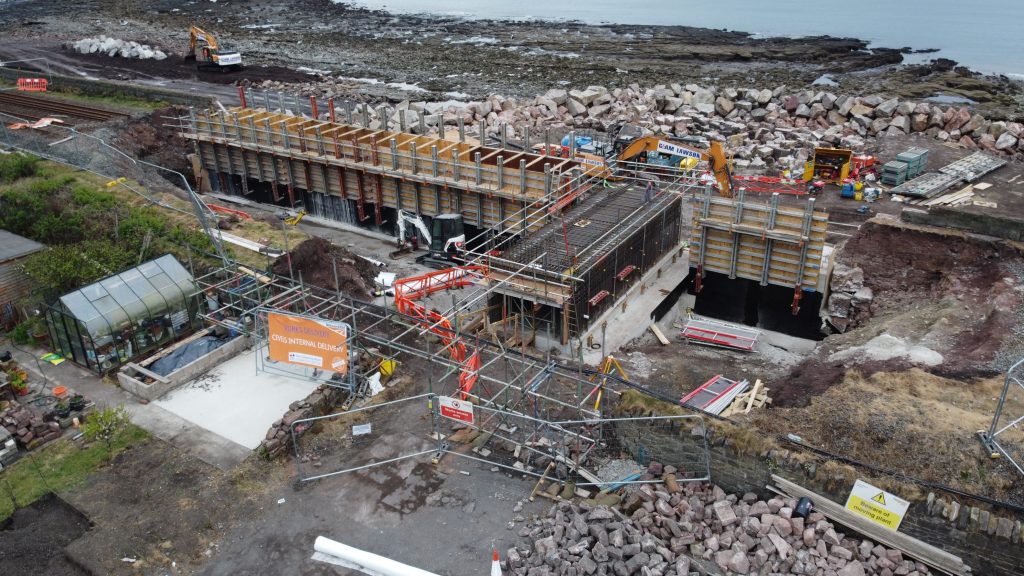Trains have started running on the Cumbrian Coast line again after three consecutive storms forced the railway to close earlier this year.
Northern Trains services resumed on Monday 1 June after we completely replaced a railway bridge damaged beyond repair at Parton by storms Ciara, Dennis and Jorge in March.
In just 11 weeks, we completed repairs between Whitehaven and Workington, including replacing the bridge and the damaged underpass beneath the railway, strengthening the sea wall and re-laying the track.
Here are seven things we encountered along the way…
1 – Reopening the line was a challenge from the start
This was an emergency project so there was no time for pre-planning. To put this into context, we plan many of our big engineering projects – like the ones we carry out over bank holidays – up to five years in advance.
2 – The damage was worse than we first thought
After the storms, inspections at Parton found huge waves and gales had caused cracks to appear in a railway bridge.
Repair work had already started when we discovered the damage to the bridge – and the sea wall – was worse than we had thought. This meant we had to completely replace the bridge to make the railway safe again.
Inspecting the bridge at Parton… and completely replacing it
3 – Quick turnaround
Reopening the line after just 11 weeks despite the unique challenges involved makes this project one of our most impressive repair jobs in recent years. The huge repairs to Dawlish in Devon in 2014 were only three weeks shorter.
4 – Below budget… while minimising disruption to passengers
We completed the Cumbrian Coast line project below budget while also reducing disruption to passengers. How? Largely by wrapping two projects into one.
We had already planned to reinforce the rock armour protecting this stretch of railway before the storms hit in March. When the severe weather closed the line unexpectedly, we brought forward our plans scheduled for later this year to coincide with the repairs.

Our team installed more than 36,000 tonnes of rock armour to protect the exposed section of coastal railway and help provide more reliable journeys in the future. We also agreed to extend the sea defence by 200 meters without additional cost or extension to the programme.
Later in June, we will further improve the railway with track renewals at Eskmeals, near Ravenglass for Eskdale station.
5 – It was a difficult site:
The weather was kind to us during the repairs but we still had to consider the tide. To work safely, we imported about 6,000 tons of rock armour and protected the area by building a breaker. This would protect the railway and our people, and leave enough room for us to work.

6 – Coronavirus forced us back to the drawing board:
Changing our usual working patterns to ensure social distancing for our team wasn’t the only issue thrown up by the coronavirus pandemic.
Sudden supply problems meant we had to change an important design. We had aimed to install a pre-cast box culvert (which drains away water) and pre-cast modular wall to act as a gravity wall shutter (to protect us from back drafts) while we rebuilt the sea wall.
It was a great idea but we soon found suppliers of the precast components had limited stock and then had to close when the lockdown began. Instead, our in-house engineers made changes, including moving the culvert 1.5m to the north to align it better with the road.
7 – Working with the community
Having a good relationship with residents is especially important during a big project like this; we needed to speak with several people living near the railway to agree access to the structure.
We found a rising water main and sewer through the access path and got permission to travel over it with heavy equipment including concrete pumps.
Read more:
How storms and flooding affect the railway